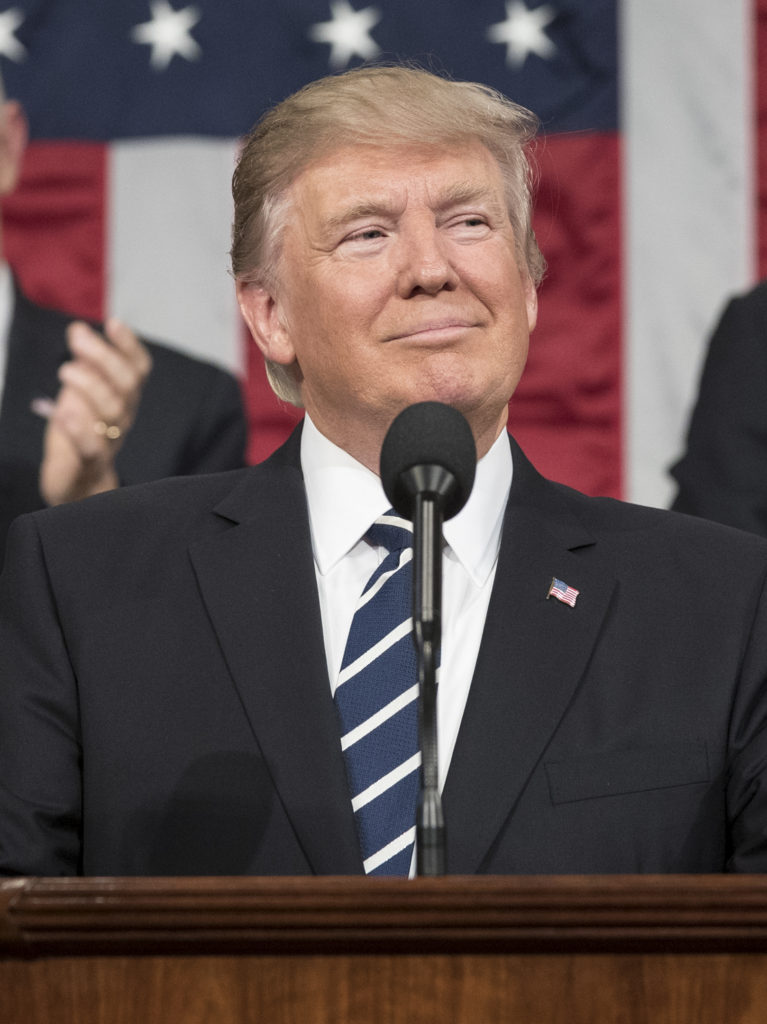On June 1, 2017, U.S. President Donald Trump declared that the United States would withdraw from the Paris Climate Agreement. His announcement began a multi-year process that will lead to the U.S. withdrawal taking effect on November 4, 2020, one day after the next presidential election.

The Paris Climate Agreement was reached on December 12, 2015, when the 197 parties to the United Nations Framework Convention on Climate Change, voted in Paris to move together toward controlling global climate change. The Paris Agreement seeks to reduce carbon emissions so that the average global temperature remains lower than 2 degrees Celsius above the pre-industrial-era average temperature. The agreement commits all parties to this goal, but leaves the contributions made and techniques used to each individual country. The agreement came into force on November 4, 2016, when at least 55 countries responsible for 55% of global carbon emissions had ratified it. Today, a total of 187 of the 197 original parties have ratified the agreement (learn more about the agreement here).

In his June 1, 2017 statement, President Trump said, “As President, I have one obligation, and that obligation is to the American people. The Paris Accord would undermine our economy, hamstring our workers, weaken our sovereignty, impose unacceptable legal risks, and put us at a permanent disadvantage to the other countries of the world. It is time to exit the Paris Accord and time to pursue a new deal that protects the environment, our companies, our citizens, and our country.” At that time, the president said all federal actions to meet the terms of the agreement would cease.
The actual withdrawal from the agreement, however, had to wait. According to the agreement, parties could not state their intention to withdraw until three years after the agreement entered into force. That occurred on November 4, 2019, and on that day, Secretary of State Mike Pompeo announced that the U.S. was withdrawing: “Today the United States began the process to withdraw from the Paris Agreement. Per the terms of the Agreement, the United States submitted formal notification of its withdrawal to the United Nations. The withdrawal will take effect one year from delivery of the notification.”
The withdrawal represented a major step-back from U.S. federal leadership in the effort to confront climate change. It did not, however, mean that the United States as a whole backed away from this challenge. On the same day as the president’s announcement—June 1, 2017—several states announced that they would continue to follow the Paris Agreement’s principles. Together they formed the organization “United States Climate Alliance.” The alliance now includes 24 states and Puerto Rico as members, all committed to the Paris Agreement. Nearly 150 U.S. cities, including Chicago, Los Angeles and Philadelphia, have also committed to moving to 100% renewable energy, as have dozens of major corporations and energy companies.
So, despite leadership from the top, the United States continues to confront the terrible specter of climate change and the massive economic and societal problems it will cause (and is causing). All levels—state, local and individual citizens—remain convinced that fighting climate change is not a bad thing for our economy and citizens. Remember what Margaret Mead said, “Never doubt that a small group of thoughtful, committed citizens can change the world; indeed, it’s the only thing that ever has.”
References:
Jaeger, Joel, Tom Cyrs and Kevin Kennedy. 2019. As Trump Steps Away from Paris Climate Agreement, U.S. States, Cities and Businesses Step Up. World Resources Institute, October 23, 2019. https://www.wri.org/blog/2019/10/trump-steps-away-paris-climate-agreement-us-states-cities-and-businesses-step-up. Accessed February 13, 2020.
Kann, Drew. 2019. US begins formal withdrawal from Paris climate accord. CNN, November 4, 2019. Available at: https://www.cnn.com/2019/11/04/politics/trump-formal-withdrawal-paris-climate-agreement/index.html. Accessed February 13, 2020.
United Nations Climate Change. What is the Paris Agreement. Available at: https://unfccc.int/process-and-meetings/the-paris-agreement/what-is-the-paris-agreement. Accessed February 13, 2020.
United States Climate Alliance. About. Available at: http://www.usclimatealliance.org/about-us. Accessed February 13, 2020.
White House. 2017. Statement by President Trump on the Paris Climate Accord. June 1, 2017. Available at: https://www.whitehouse.gov/briefings-statements/statement-president-trump-paris-climate-accord/. Accessed February 13, 2020.
